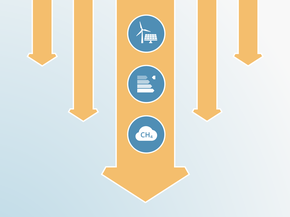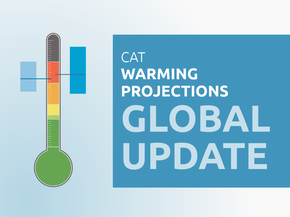Country summary
Overview
President Lula da Silva, inaugurated in January 2023, has prioritised the reconstruction of Brazil's environmental policy, emphasising low-carbon, socio-economic development. Brazil's forthcoming presidency of the G20 summit in 2024 and hosting of COP30 in 2025 also shows the country’s strengthened cooperation and re-engagement with the international community. In October 2023, Brazil reverted to its original NDC targets, reflecting a renewed focus on combating deforestation. Initial reports indicate a 36% decrease in primary forest loss in 2023 compared to 2022 due to strengthened law enforcement.
Domestically, Brazil has adopted new economy-wide policies to support sustainable development and job creation which highlights the government’s commitment to invest in infrastructure, industry and the transformation of the economy. While these policies include energy transition as one of their main pillars of action, Brazil is yet to have a fixed timeline for phasing out fossil fuels and will continue to allocate significant resources to the production and development of oil and fossil gas in the next decade, which raises concerns about the prioritisation of sustainability and environmental goals within Brazil's infrastructure agenda. Expanding oil and fossil gas production contradicts the Paris Agreement's target and Brazil’s ambition to lead on climate action ahead of COP30. With this update, Brazil’s overall rating of its climate targets and actions remain rated “Insufficient”.
Brazil is not on track to reach either its 2025 target or its 2030. Brazil’s emissions under current policies (excluding the land use and land use change — or LULUCF — sector) have essentially plateaued, expected to only slightly grow over the rest of the decade. Yet, Brazil needs to peak and rapidly decrease emissions to limit warming to 1.5°C. Brazil will need to sustain and strengthen policy implementation and accelerate mitigation action in all sectors, including a reversal of present plans to expand the exploitation of fossil fuel energy sources.
Recent positive policy developments include:
- The change in government which is prioritising reconstructing the country’s environmental policy which had suffered from budget cuts and policy rollbacks in the past.
- The resubmission of its NDC in October 2023, followed by the ongoing process of reviewing the National Climate Change Policy (PNMC), which will now include sectoral mitigation and adaptation strategies covering the period up to 2035 as well as indicative sectoral targets for 2030 and 2035.
- Deforestation rates falling in response to political action as recent studies indicate a 36% drop in primary forest losses in Brazil in 2023 compared to 2022 levels.
- Brazil's presidency of the G20 summit in 2024 and hosting of COP30 in 2025 highlight its renewed engagement with the international community on environmental issues.
- The development of new policies such as the Ecological Transformation Plan (PTE) to promote sustainable development while reducing Brazil’s overall environmental footprint, and which includes energy transition as one of its six pillars of action.
To improve its climate targets and action rating, Brazil could:
- Submit a new and significantly more ambitious NDC which clearly outlines the different sectors' contributions to the mitigation target, in particular that of the LULUCF sector. The National Climate Change Policy, currently under development and which will include sectoral mitigation strategies up to 2035, should be aligned with this more ambitious NDC.
- Submit a long-term strategy to the UNFCCC with a detailed plan to achieve the climate neutrality goal by 2050. This should again provide clarity on the intended role of the LULUCF sector in meeting Brazil’s long-term targets.
- Develop a comprehensive energy transition policy with a timeline for phasing out fossil fuels and a detailed plan for achieving the transition in a just and equitable way. Brazil’s long-term energy plans see an expanded role for fossil gas and oil, with the production of both types of fossil fuel set to increase in the coming decade. This stands in stark contrast with both the Paris Agreement’s 1.5°C temperature limit and Brazil’s aspiration to position itself as a climate leader ahead of COP30.
- Maintain current hydropower generation alongside increasing wind and solar generation to meet electricity demand growth and to replace the remaining fossil fuel generation, particularly fossil gas. With this, Brazil could put itself among the first countries in the world to reach the 100% clean electricity target by 2030.
- Strengthen policies to mitigate emissions in the agriculture sector as Brazil’s second-largest contributor to emissions, specifically looking at more sustainable and efficient agriculture methods to increase productivity of currently under-utilised land.
- Continue to enforce laws to reduce deforestation, especially in the Cerrado region prone to the expansion of the country’s main agricultural frontier, and where deforestation increased by 6% in 2023.
Description of CAT ratings
The CAT rates each country’s targets and policies against (1) its fair share contribution to climate change mitigation considering a range of equity principles including responsibility, capability and equality, and (2) what is technically and economically feasible using modelled domestic pathways which in absence of a better method are based on global least-cost climate change mitigation.
Comparing a country’s fair share ranges and modelled domestic pathways provides insights into which governments should provide climate finance and which should receive it. Developed countries with large responsibility for historical emissions and high per-capita emissions, must not only implement ambitious climate action domestically but must also support climate action in developing countries with lower historical responsibility, capability, and lower per-capita emissions.
The CAT rates Brazil’s climate targets and policies as “Insufficient”. The “Insufficient” rating indicates that Brazil’s climate policies and commitments need substantial improvements to be consistent with the Paris Agreement’s 1.5°C temperature limit.
Brazil is not meeting its fair share contribution to climate change mitigation. Brazil’s unconditional NDC and policies and action are rated as “Almost sufficient” and “Insufficient” when compared to its fair share, respectively. Brazil’s conditional NDC is rated as “Almost sufficient” against modelled domestic pathways. To get a better rating Brazil needs to increase its climate target’s ambition and establish associated policies that can curb the growth in national emissions and set them on a downward trend.
Our calculations show Brazil’s total emissions (excluding LULUCF) will reach between 1,162 MtCO2e and 1,180 MtCO2e in 2030 under current policies. Brazil is not on track to reach either its 2025 or its 2030 targets. To peak and then rapidly decrease emissions, as required in order to limit warming to 1.5°C, Brazil will need to sustain and strengthen policy implementation and accelerate mitigation action in all sectors— including a reversal of present plans to expand fossil fuel energy sources.
The CAT rates Brazil’s policies and actions as “Insufficient”. The “Insufficient” rating indicates that Brazil’s climate policies and actions need substantial improvements to be consistent with the Paris Agreement’s 1.5°C temperature limit. If all countries were to follow Brazil’s approach, warming would reach over 2°C and up to 3°C.
Following the resubmission of its NDC in October 2023, the Inter-ministerial Council on Climate Change began reviewing the National Climate Change Policy (PNMC), which will now include sectoral mitigation and adaptation strategies covering the period up to 2035 as well as indicative sectoral targets for 2030 and 2035, a process that could take up to two years.
Recent studies reported deforestation rates falling in response to political action. A 36% drop in primary forest losses in Brazil in 2023 compared to 2022 levels was celebrated as an example of the effects of re-establishing law enforcement in the forestry sector. However, deforestation remains higher than in the early 2010s, with negative trends in some regions like the Cerrado where deforestation actually increased by 6% in 2023 compared to 2022.
Brazil's presidency of the G20 summit in 2024 and hosting of COP30 in 2025 highlight its renewed engagement with the international community on environmental issues, signalling its commitment to shaping international climate policy. This is particularly relevant as 2025 will be the year when countries are mandated to submit updated and more ambitious 2035 climate targets under the Paris Agreement.
However, there are important and inconsistent elements in some of the new policy developments, which cast serious doubt on the government's commitment to ecological transformation and transition away from fossil fuels. In particular, Brazil’s new growth acceleration programme —Novo PAC— earmarks important parts of its budget for the production and development of oil and fossil gas industries; as well as the lack of concrete targets for a transition away from fossil fuels in the new Ecological Transformation Plan (PTE).
The full policies and action analysis can be found here.
While the current NDC is stronger than that submitted in 2022 under the previous administration, it is not enough to improve Brazil's rating against our modelled domestic pathways. Brazil is not on track to achieve either its 2025 or 2030 targets and will need to adopt additional policies to cut their emissions.
We rate Brazil’s 2030 NDC target as “Almost sufficient” when compared to modelled domestic emissions pathways. The “Almost sufficient” rating indicates that Brazil’s NDC target in 2030 is not yet consistent with its share of a global least-cost pathway limiting warming to 1.5°C but could be, with moderate improvements. If all countries were to follow Brazil’s approach, warming could be held below—but not well below—2°C.
We rate Brazil’s 2030 NDC target as “Almost sufficient” when compared with its fair share contribution to climate action. Brazil reverted to the original NDC's absolute emission targets submitted in 2016, which improved this rating by one category compared to the NDC submitted in 2022. However, according to our methodology, this target still falls short of being a fair contribution to global climate action.
The “Almost sufficient” rating indicates that Brazil’s NDC target in 2030 is not yet consistent with its fair share of the global mitigation effort to limit warming to 1.5°C but could be, with moderate improvements. If all countries were to follow Brazil’s approach, warming could be held below—but not well below—2°C. Brazil is not on track to achieve either its 2025 or 2030 targets and will need to adopt additional policies to cut their emissions.
Land use and forestry emissions have been by far the largest source of GHG emissions in Brazil since the early 1990s. Deforestation rates soared in 2019, with over one million hectares cleared in the legal Amazon, a 34% increase from 2018 and a staggering 120% surge from 2012, the historical low. Preventing and combating deforestation stands as the biggest challenge for the Lula administration.
The government has launched a new edition of the Action Plan to Prevent and Combat Deforestation in the Legal Amazon (PPCDAm), with a target of zero deforestation by 2030 (also included in the NDC). Early results show a 36% drop in primary forest losses in Brazil in 2023, compared to 2022.
Meeting Brazil’s NDC target will require efforts to halt deforestation to be accompanied by extensive reforestation and restoration of native forests. This can help Brazil to transition towards scenarios where the land use sector not only reduces emissions but also actively removes carbon from the atmosphere.
Brazil’s aims to achieve climate neutrality by 2050, a target reiterated in its 2023 NDC submission. However, no further details have been communicated to date, which limits our ability to assess the comprehensiveness of the target. Brazil has not yet submitted a long-term strategy to the UNFCCC. We evaluate Brail’s net zero target as: Poor.
The full net zero target analysis can be found here.
Further analysis
Latest publications
Stay informed
Subscribe to our newsletter




